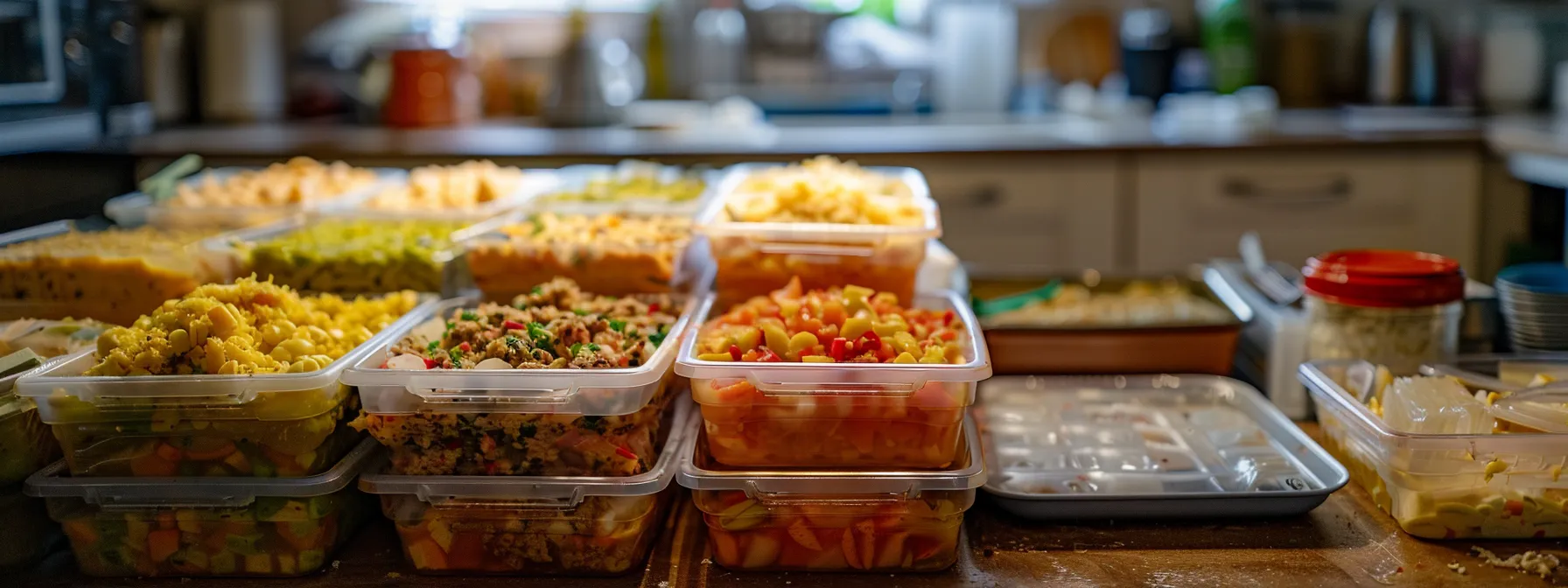Tips for Budget-Friendly Halal Meal Preparation
For many households, sticking to a halal diet while maintaining a budget can be a balancing act. With the cost of food rising steadily, it may seem daunting to find affordable ways to continue enjoying halal meals. There are several strategies that can help you cut costs without compromising on dietary requirements. Below, we explore practical tips for budget-friendly halal meal preparation that can make a significant difference in your monthly food expenses.
Creative Halal Cooking: Stretching Ingredients for Multiple Meals

A thoughtful approach to ingredient usage can stretch your food budget without sacrificing variety. For example, larger cuts of halal meat can be used in a stew, then repurposed in tacos or pizzas later. Experimenting with different cooking methods, like roasting instead of boiling vegetables or marinating meats with different spices, can transform the same ingredients into new dishes, adding flavor and excitement to your meals.
Embracing meatless meals a couple of times a week is another great way to save. Many halal-compliant recipes are vegetarian and offer a budget-friendly way to diversify your diet. Using every part of your ingredients, like making broths from meat bones or composting vegetable scraps, also helps reduce waste and further stretches your food budget, all while maintaining the principles of cooking halal.
Maximizing Savings with Seasonal Halal Ingredients
Seasonal shopping is a cost-effective way to buy halal ingredients, as seasonal produce is abundant, fresh, and high-quality. This approach creates a diverse menu that remains budget-friendly. Seasonal halal meats and fish can be cheaper when available. Local farmers’ markets and butchers offer competitive prices and support local businesses. Preserving seasonal foods can extend their availability and save money for future use.
Canning, freezing, or drying fruits and vegetables when they’re affordable ensures a stockpile of ingredients that comply with halal standards year-round, reducing food waste. When considering organic options, balance health benefits with budget constraints. Non-organic alternatives may be suitable for halal cooking, especially when cleaned properly.
Leveraging Wholesale Purchases for Halal Diets
Wholesale grocery purchases can significantly lower per-unit costs, especially for halal foods like rice, beans, and spices. Proper storage is crucial to maintain freshness and avoid spoilage. Wholesale clubs and cash-and-carry businesses offer discounts on larger purchases, but membership fees may be required.
Double-check products meet halal standards to avoid specific dietary requirements. Collaborating with other halal-following families or friends can make wholesale shopping more advantageous. Pooling resources can make it more manageable for smaller households, and sharing the benefits can foster a supportive community. Specialty halal meats and products can be purchased in larger quantities, making wholesale purchasing a smart choice for maintaining halal while budgeting.
Mastering the Art of Halal Meal Planning and Prep

Meal planning is crucial for budget-conscious eating, especially when preparing halal meals. By planning ahead, you can create a cost-effective shopping list that meets halal standards, avoiding impulse purchases and unnecessary spending. This saves time and money by reducing the need for convenience food.
Batch cooking and freezing meals in portions can also help maintain a halal diet during busy periods. Exploring different cuisines can provide variety without breaking the bank, and meal planning apps and resources can help keep meals interesting and affordable. Being mindful of leftovers can help reduce food waste and the need for additional groceries.
Harnessing Digital Coupons and Apps for Halal Groceries Savings
The digital era offers numerous tools to save money on groceries, including halal-certified products. Retailers and brands provide digital coupons and app-exclusive deals, allowing for significant savings on regular halal grocery items. Price comparison apps can help find the best deals by scanning a product’s barcode, ensuring the lowest possible price.
Loyalty programs can also contribute to savings on halal goods, as supermarkets and grocers often reward regular customers with points for discounts on future purchases. Cashback and rebate apps can also be beneficial, as they offer money back on purchases, including halal items, reducing the net cost of halal groceries.
Overall, adhering to a halal diet while on a budget is entirely feasible with the right planning and utilization of resources. By incorporating seasonal ingredients, mastering meal planning, leveraging wholesale purchases, getting creative in the kitchen, and utilizing digital deals, you can enjoy diverse, flavorful halal meals without financial strain.
